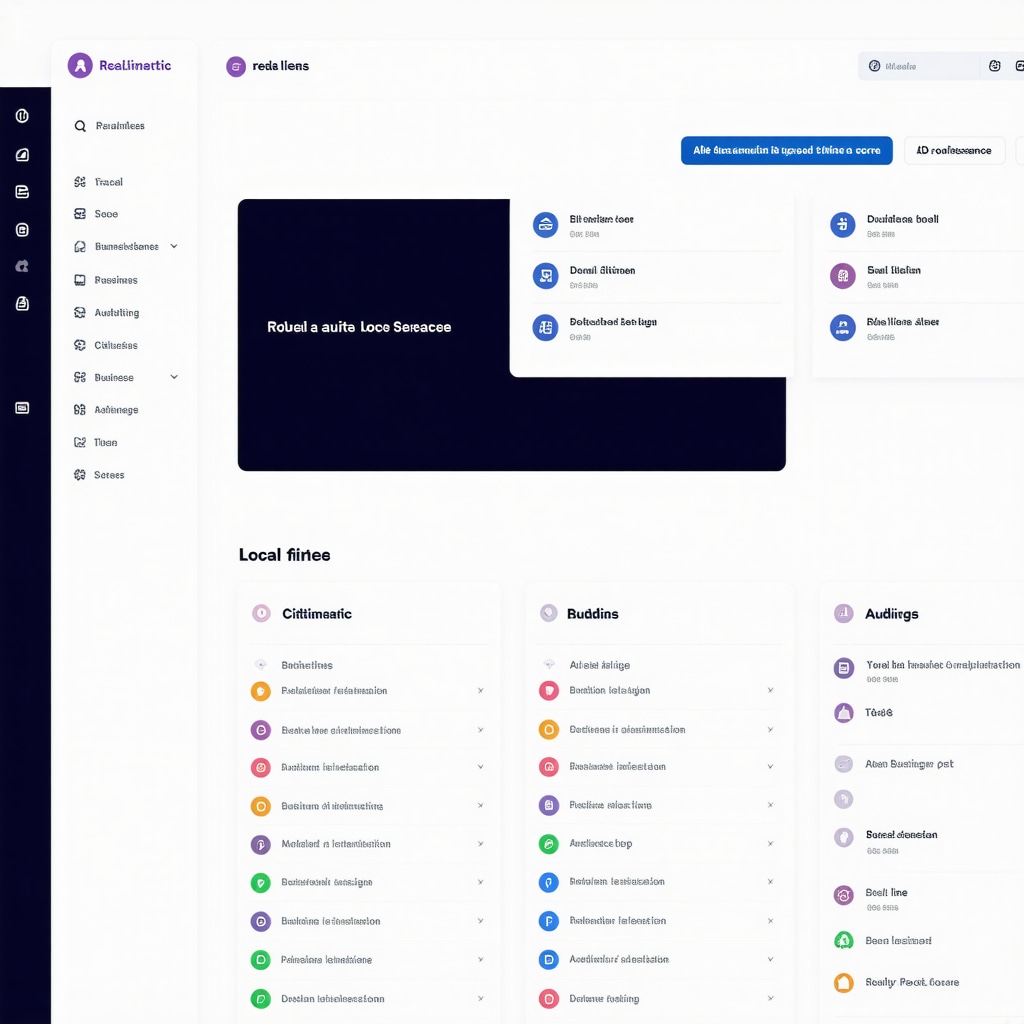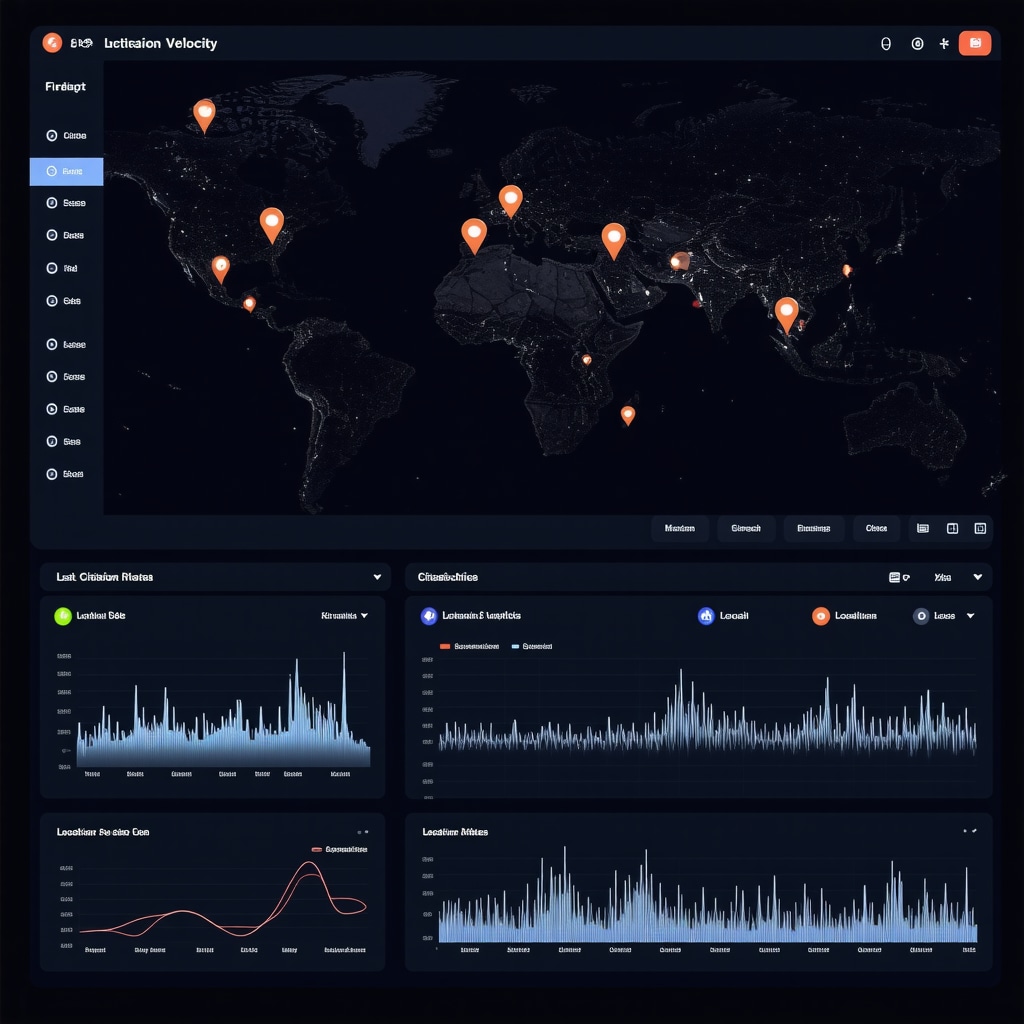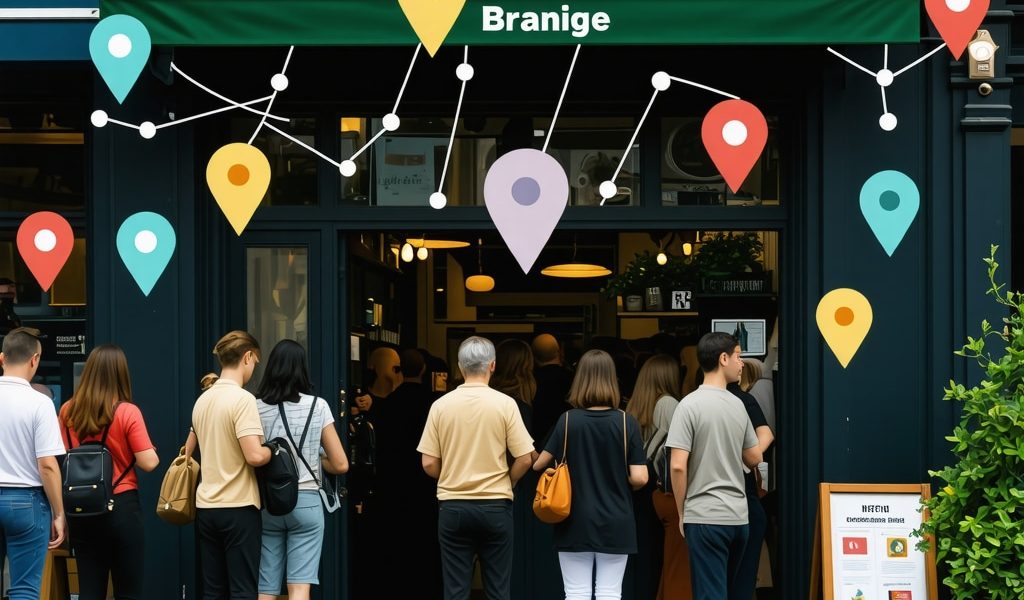Strategic Foundations of Local SEO Through Citation Building
In the evolving landscape of local search engine optimization, citations remain a cornerstone for enhancing Google local rankings. Citations—mentions of your business’s name, address, and phone number (NAP) on reputable directories and platforms—serve as critical signals to Google’s algorithms. These signals establish trustworthiness and geographical relevance, which are pivotal in ranking within Google’s Local Pack and Maps results.
Expert practitioners understand that mere citation volume is insufficient; instead, the emphasis must be on citation quality, consistency, and strategic placement. This involves systematically auditing existing citations for NAP accuracy and proactively managing citation sources that align with niche, location, and domain authority. Such precision aids in consolidating local search authority and mitigating the risks of data fragmentation that can dilute ranking performance.
Advanced Citation Management Techniques for Enhanced Local Visibility
Beyond foundational citation building, advanced strategies incorporate citation diversification and integration with other SEO signals. Diversification includes leveraging industry-specific directories, local chambers of commerce listings, and authoritative review platforms. Integrating citations with schema markup on your Google Business Profile and website further amplifies semantic relevance, thereby boosting Google’s confidence in the business’s legitimacy and locality.
Moreover, periodic citation audits are essential to identify and rectify inconsistencies or duplicate listings that negatively impact local rankings. The use of specialized tools, such as BrightLocal or Moz Local, empowers SEO professionals to streamline this process, ensuring citations remain current and authoritative.
How Do Citation Variances Impact Local Search Ranking Algorithmically?
Experts frequently debate the algorithmic sensitivity to citation variances. Inconsistent NAP information can trigger algorithmic penalties or confusion, causing Google to question the data’s reliability. This results in diminished local search visibility and can disqualify a business from appearing in coveted local map packs. Additionally, citations on low-authority or spammy sites can dilute ranking signals or harm brand reputation.
Therefore, maintaining citation uniformity across all platforms is crucial. This consistency reinforces Google’s entity recognition algorithms, which rely on corroborated data points to validate a business’s location and operational authenticity. Attribution of citations to verified, high-authority sources further solidifies local SEO signals, increasing the likelihood of improved rankings.
Integrating Citation Strategies Within a Holistic Local SEO Framework
Expert local SEO strategies integrate citation management with comprehensive Google Business Profile optimization and review generation tactics. For example, strategic citation building complements efforts outlined in our expert GMB citation services guide, which emphasizes the synergy between citations and Google My Business profile enhancements.
This holistic approach includes leveraging keyword-optimized business descriptions, utilizing geo-targeted long-tail keywords, and cultivating positive reviews, all of which interact with citation signals to elevate local search prominence. For deeper insights, our complete guide on mastering Google Business SEO offers advanced methodologies that pair seamlessly with citation management.
Call to Action
To maximize your local SEO impact, explore our comprehensive resources on how to build local citations effectively and join the discourse by sharing your professional insights on citation management techniques with our expert community.
For continued learning, refer to Moz’s seminal research on local ranking factors, which identifies citations as a critical component of local search success (Moz Local Search Ranking Factors 2023).
Leveraging Data Aggregators for Citation Amplification
In the pursuit of authoritative local citations, data aggregators play a pivotal role by disseminating your business information across a vast network of directories and platforms. Leading aggregators such as Neustar Localeze, Factual, and Infogroup are instrumental in ensuring consistent NAP distribution at scale. SEO experts recognize that submission to these aggregators can exponentially increase citation reach while maintaining data uniformity, an essential factor in Google’s local ranking algorithms.
However, indiscriminate submission to all aggregators without targeted strategy may lead to inconsistent listings or outdated information. A best practice involves aligning your business data with aggregators that are most influential in your industry and geographic area. This strategic selection not only optimizes citation quality but also enhances local SERP prominence by reinforcing relevance and trust.
Harnessing Schema Markup to Complement Citation Signals
Integrating structured data through schema markup is an advanced tactic that amplifies the impact of citations by providing search engines with explicit details about your business. Using LocalBusiness schema enriched with accurate NAP, business hours, and service areas, you reinforce the citation signals present in your Google Business Profile and external directories.
Implementing schema markup on your website supports semantic coherence, enabling Google to verify the consistency of your business information across multiple online touchpoints. This approach is especially effective when combined with dynamic citation management, as it signals high data integrity, fostering improved local ranking potential and enhanced visibility in rich search results.
How Can Citation Velocity Influence Your Local SEO Trajectory?
Citation velocity, the rate at which new citations are acquired over time, is a nuanced factor in local SEO that often escapes mainstream discussion. SEO experts debate whether a sudden surge in citations can appear unnatural and potentially trigger algorithmic scrutiny or if a steady, consistent citation acquisition pattern better signals authentic business growth.
Empirical evidence suggests that balanced citation velocity, aligned with genuine business expansion or marketing activities, contributes to sustained ranking improvements. Conversely, erratic spikes may raise red flags within Google’s local search algorithms, risking temporary ranking penalties. Therefore, monitoring citation velocity and aligning it with your overall marketing cadence is a prudent tactic for maintaining local SEO health.
Optimizing Citation Management with Emerging Technologies
Artificial intelligence and automation tools are revolutionizing citation management by enabling scalable audits, error detection, and real-time updates. Platforms equipped with AI-driven analytics can identify citation discrepancies faster than manual methods, offering actionable insights to maintain NAP accuracy and eliminate duplicate listings promptly.
Moreover, machine learning models can predict citation sources with the highest impact on your local rankings, allowing SEO professionals to prioritize efforts effectively. These technological advancements align with holistic local SEO strategies, integrating seamlessly with Google Business Profile optimization and review management to maximize local search prominence.
Contextualizing Citation Strategy Within Broader Local SEO Practices
While citations are foundational, their integration with other local SEO components such as review generation, on-page optimization, and Google Business Profile management is vital. For comprehensive tactics, explore our detailed guide on local SEO ranking tips. This resource elucidates methods to harmonize citations with keywords, reviews, and content, ensuring a unified approach that propels your business ahead in local search results.
Additionally, understanding how to use GMB citation management to enhance local search authority is crucial for sustained visibility gains. These interconnected strategies form the backbone of a resilient local SEO framework.
For further scholarly insights, consult the latest findings by Search Engine Land, which underscores the evolving significance of citation consistency and quality in local SEO success (Search Engine Land, 2024).
Engage and Elevate Your Local SEO Expertise
We invite local SEO professionals and business owners alike to share your experiences and challenges with citation velocity and management in the comments. Join the conversation to collectively refine best practices and stay abreast of emerging trends.
For those seeking to deepen your knowledge, visit our comprehensive resource on building local citations effectively, designed to empower your local SEO initiatives with actionable strategies and expert insights.
Decoding Citation Quality Through Semantic Analysis and AI-Powered Insights
In the realm of local SEO, the qualitative aspect of citations has grown exponentially in importance. Modern search engines deploy sophisticated semantic algorithms that not only detect the presence of NAP data but also evaluate contextual relevance and trustworthiness. Utilizing AI-driven semantic analysis tools, SEO experts can now assess citation sources beyond mere directory listings. These tools analyze the topical alignment of citation platforms, the credibility of their content, and the network authority they confer, enabling a refined prioritization strategy for citation acquisition.
By integrating semantic relevance scores with traditional domain authority metrics, SEO professionals can craft citation profiles that resonate with Google’s understanding of local intent. This approach transcends volume-centric tactics, aligning citation efforts with nuanced factors such as industry-specific jargon, regional dialects, and consumer behavior trends relevant to the business’s locale.
What Role Does AI-Driven Citation Auditing Play in Preempting Local SEO Pitfalls?
AI-driven citation auditing tools revolutionize the maintenance of citation integrity by automatically scanning thousands of potential citation points, flagging inconsistencies, duplicates, or outdated information with remarkable speed and accuracy. These tools employ machine learning models trained on extensive datasets of local SEO outcomes to predict which citation corrections or additions will yield the highest ranking uplift.
Moreover, they facilitate proactive management by providing alerts when third-party platforms alter or remove business listings, enabling timely remediation that preserves citation equity. The automation of such auditing reduces manual workload while simultaneously enhancing precision, a critical advantage in competitive local markets.
Leading platforms, such as BrightLocal’s Citation Tracker and Yext’s AI-powered Knowledge Network, exemplify this trend by offering real-time citation health dashboards and actionable insights tailored to diverse industry verticals (BrightLocal Citation Best Practices).
Strategic Synergy: Aligning Citation Velocity with Seasonal and Market Dynamics
The concept of citation velocity must be contextualized within broader business cycles and market fluctuations. Advanced local SEO strategists analyze historical market data alongside citation growth trends to synchronize citation acquisition with periods of heightened consumer activity or promotional campaigns.
This synchronization signals organic business growth to search engines, reinforcing the legitimacy of citation increases. For instance, a local landscaping company might accelerate citation building during spring and summer months when demand peaks, thereby aligning citation velocity with real-world business operations.
Conversely, during off-peak seasons, maintaining a steady but reduced citation acquisition rate prevents suspicion of manipulative behavior. This nuanced management of citation velocity requires robust data analytics and close collaboration between marketing and SEO teams to maintain authenticity and algorithmic favor.
Innovations in Citation Signal Amplification via Multimodal Content Integration
Beyond textual citations, emerging strategies incorporate multimodal content—such as geotagged images, videos, and user-generated multimedia—across citation platforms to deepen engagement signals. Embedding geospatial metadata within visual content posted on business profiles and citation sources provides additional layers of validation for local search algorithms.
This multimedia integration creates a richer digital footprint that corroborates business location and activity in a way pure text citations cannot. For example, a restaurant leveraging customer-posted Instagram photos tagged with its location not only gains citation value but also enhances social proof and user engagement metrics that indirectly bolster local SEO.
SEO professionals are increasingly coordinating cross-channel campaigns that unify citation-building efforts with social media strategies and content marketing, fostering a holistic ecosystem of corroborative local signals.

Deciphering Citation Velocity: Timing and Authenticity in Local SEO Growth
In the intricate ecosystem of local SEO, citation velocity—the tempo of accruing new citations—plays a nuanced yet pivotal role. Beyond the binary of citation count, the rhythm at which citations accumulate can either reinforce or undermine perceived business legitimacy. SEO authorities advocate for aligning citation velocity with natural business milestones and marketing cycles, thereby signaling organic growth patterns to search engines.
This synchronization is essential to avoid algorithmic suspicion that might arise from abrupt citation spikes uncorrelated with business activity. For example, businesses in seasonal industries benefit from accelerating citation acquisition during peak demand periods, while maintaining a moderated pace in quieter months preserves algorithmic trust.
AI-Enhanced Citation Auditing: Precision Tools for Maintaining Local SEO Integrity
The adoption of artificial intelligence in citation auditing has revolutionized how SEO professionals maintain citation accuracy and consistency. AI-driven platforms utilize machine learning models trained on extensive local search datasets to swiftly detect inconsistencies, duplicates, and outdated listings that could otherwise erode search visibility.
These platforms, such as BrightLocal’s Citation Tracker and Yext’s Knowledge Network, offer granular real-time dashboards that highlight citation health metrics, enabling proactive remediation and strategic prioritization of citation sources. This level of automation not only reduces manual workload but also elevates the precision and timeliness of citation management, crucial in highly competitive local markets.
How Does AI-Driven Citation Analysis Influence Local Search Algorithmic Trust?
AI-powered citation analysis transcends traditional manual audits by incorporating semantic context and predictive analytics. By evaluating citation source authority, topical relevance, and historical update patterns, AI tools provide actionable insights that anticipate algorithmic responses. This preemptive intelligence allows SEO strategists to fortify citation profiles before inconsistencies impact rankings.
Furthermore, AI models can simulate potential citation scenarios, guiding the selection of high-impact citation opportunities aligned with evolving local search algorithms. This forward-looking approach embodies next-generation local SEO methodologies, reinforcing a business’s digital footprint with scientifically optimized citation frameworks.
Strategic Integration of Citation Velocity with Market Dynamics and Content Ecosystems
Advanced practitioners integrate citation velocity strategies within broader market analytics and content marketing frameworks. By leveraging data on consumer behavior trends, competitive activity, and event-driven demand, citation campaigns can be tailored to maximize temporal relevance and search visibility.
Complementing citation velocity with multimodal content—such as geotagged imagery and user-generated videos—further enriches local signals. This multimodal integration creates a robust, corroborative ecosystem that amplifies the semantic footprint of citations across platforms and devices.
Such sophisticated synchronization requires cross-functional collaboration between SEO, marketing analytics, and content teams to harness data-driven insights effectively and elevate local search prominence sustainably.
Authoritative Resource for Deepening Local SEO with Citation Sophistication
For those seeking to deepen their expertise in the interplay of citation velocity, AI auditing, and integrated local SEO strategies, BrightLocal provides a comprehensive analysis and best practices guide tailored for advanced practitioners (BrightLocal Citation Best Practices). This resource elucidates the technical and strategic nuances necessary to navigate the evolving local SEO landscape with confidence.
Engage with Cutting-Edge Local SEO Strategies Today
Elevate your local SEO acumen by incorporating AI-driven citation auditing and velocity management into your strategic arsenal. We encourage professionals to explore our advanced guides and share insights on effective citation synchronization with market trends. Join our expert community to stay ahead in the competitive realm of local search optimization.

Expert Insights & Advanced Considerations
Semantic Relevance Outweighs Citation Volume
In today’s local SEO landscape, the qualitative aspect of citations—measured through semantic relevance and contextual trustworthiness—has overtaken sheer citation volume as the decisive ranking factor. Search engines increasingly leverage AI-powered semantic analysis to evaluate whether citation sources align topically and geographically with the business, elevating those that demonstrate coherent local intent and authority.
Synchronization of Citation Velocity with Market Dynamics Is Critical
Strategic management of citation velocity, aligned with natural business cycles and promotional activities, signals organic growth patterns to local search algorithms. This prevents algorithmic suspicion that can arise from erratic citation spikes and reinforces legitimacy, particularly for seasonal industries where demand fluctuations are predictable and should be mirrored in citation acquisition strategies.
AI-Enhanced Citation Auditing Enables Proactive Local SEO Maintenance
The integration of artificial intelligence into citation auditing streamlines the detection of inconsistencies, duplicates, and outdated entries across thousands of platforms. AI tools not only expedite error identification but also predict the impact of citation adjustments on local rankings, enabling SEO professionals to prioritize interventions that maximize ranking uplift and maintain citation health in competitive markets.
Multimodal Content Integration Amplifies Citation Signals
Incorporating geotagged images, videos, and user-generated multimedia within citation profiles enriches the digital footprint beyond textual mentions. This multimodal approach provides corroborative evidence of location and activity to search engines, enhancing local SEO signals through diversified content formats and fostering higher engagement and social proof.
Holistic Integration of Citations with Google Business Profile and Reviews
Effective citation strategies must be embedded within a broader local SEO framework that includes optimized Google Business Profile management and robust review generation. This integrated methodology leverages keyword optimization, geo-targeting, and positive customer feedback to synergistically elevate local search prominence and sustain ranking improvements over time.
Curated Expert Resources
- BrightLocal Citation Best Practices: Offers comprehensive guidance on leveraging citation quality, velocity, and AI auditing tools to optimize local SEO outcomes. Explore here.
- Moz Local Search Ranking Factors 2023: Provides data-driven insights into the weighting of citations among local ranking signals, valuable for aligning strategies with algorithmic priorities. Learn more.
- Search Engine Land Local SEO Research: Delivers up-to-date analysis on citation consistency and quality’s evolving role in local search success. Visit site.
- Ranking SEO GMB Expert Guides: A rich collection of advanced local SEO resources including effective citation building and mastering Google Business SEO for comprehensive optimization.
- BrightLocal Citation Tracker and Yext Knowledge Network: Leading AI-driven platforms for real-time citation health monitoring and strategic citation management tailored for diverse industries.
Final Expert Perspective
Mastering local SEO citation strategies today demands more than accumulating mentions; it requires a sophisticated blend of semantic relevance, AI-powered auditing, and strategic velocity management aligned with real-world business activities. Integrating multimodal content and embedding citations within a comprehensive Google Business Profile and review ecosystem further elevates local search authority. These nuanced approaches collectively fortify your digital presence and amplify ranking potential. To continue refining your expertise and apply these advanced tactics, explore our detailed guides on building local citations effectively and mastering Google Business SEO. Engage with our expert community to share insights and stay at the forefront of local SEO innovation.




One aspect that resonated with me in this post is the emphasis on citation quality and consistency over sheer volume. In my experience working with small local businesses, the challenge often lies in keeping NAP details accurate across numerous platforms, especially when business info changes or expands. I’ve witnessed cases where inconsistent citations led not just to lower rankings, but also confused customers trying to find or contact the business. Using tools like BrightLocal for regular citation audits has been invaluable for maintaining uniformity and promptly addressing duplicates or outdated info.
Additionally, the strategic use of niche-specific directories and chambers of commerce listings can really set a business apart by boosting relevance in its specific field and locality. I’m also intrigued by the integration of schema markup to complement citations—it seems like a smart way to enhance Google’s confidence in the business’s authenticity.
I’m curious how others approach balancing citation velocity with maintaining natural growth signals? Especially for businesses with fluctuating seasonal demand, what strategies have you found effective in pacing citation acquisition without raising algorithmic suspicions? Would love to hear your methods or tools that have worked well in managing this rhythm.
This post underscores the nuanced importance of citation quality and consistency, which is so critical yet often overlooked by newcomers to local SEO. In my own experience, especially working with mid-sized businesses that expand into multiple locations, ensuring NAP uniformity across various platforms is a constant challenge. I’ve found that leveraging dedicated auditing tools like Moz Local and BrightLocal really helps in proactively maintaining data integrity, but the strategic placement of citations on high-authority, industry-relevant directories also significantly influences local rankings.
What I find particularly interesting is the role of schema markup — when correctly implemented, it does seem to reinforce the credibility of citations and reduces the risk of conflicting data. My question is: how do others balance the effort required for meticulous citation management with the need for scalable, automated processes? Are there effective workflows or tools that streamline this without sacrificing quality? The evolving algorithms make this a moving target, and it would be helpful to hear real-world tips on maintaining this balance efficiently.